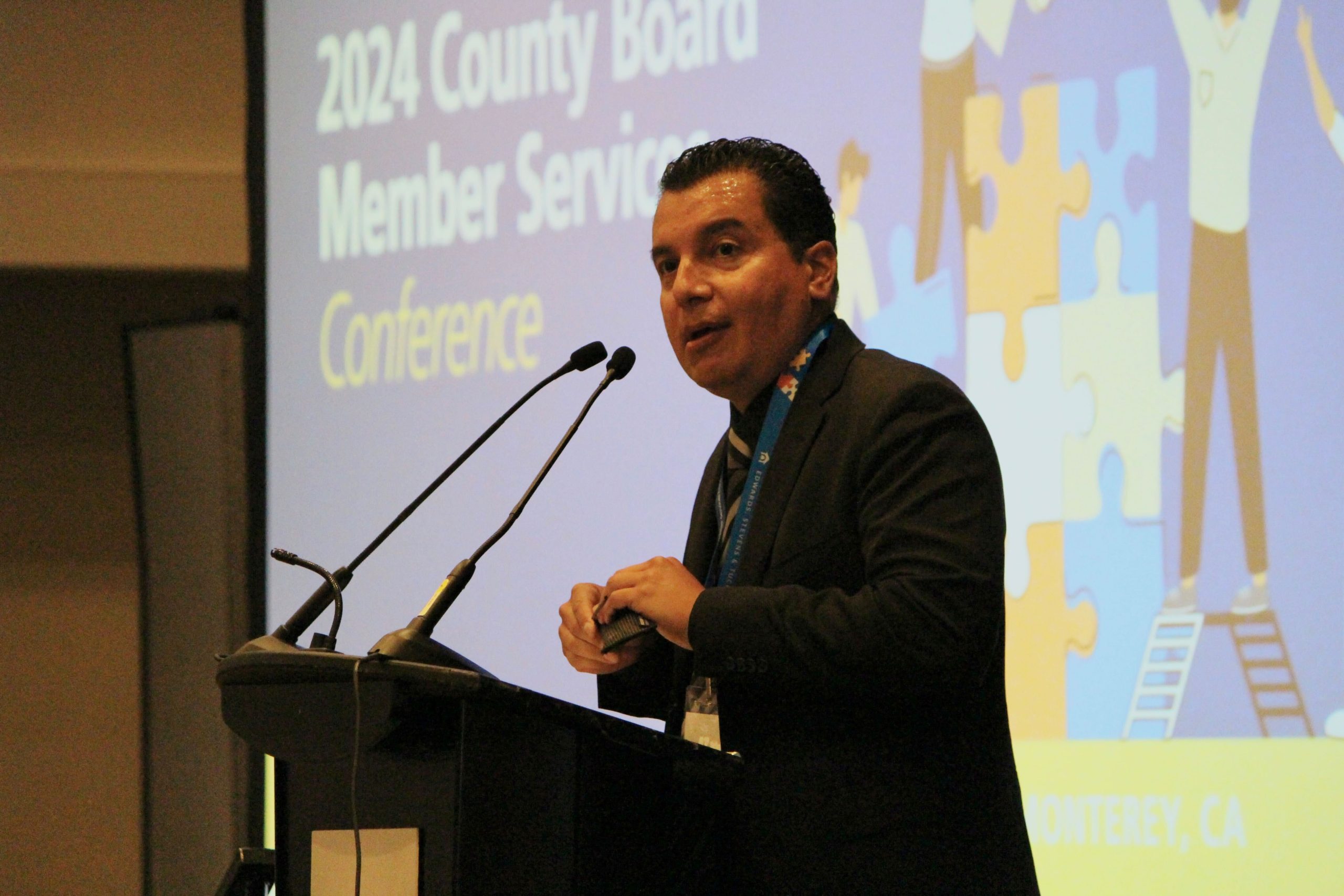State Superintendent of Public Instruction Tony Thurmond announced on Sept. 21 the Education to End Hate initiative, designed to empower educators and students to confront hate, bigotry and racism through education.
“Education continues to be one of our most powerful tools for countering hate and for promoting understanding and tolerance,” Thurmond said during a press conference announcing new educator training grants, partnerships with community leaders and virtual classroom sessions.
The California Department of Education will award up to $200,000 in mini-grants to local educational agencies to support educator training in anti-racism and bias, Thurmond said. The application due date for the first round of the grants is Tuesday, Sept. 29. More information on the grants and how to apply can be found below.
There will also be a series of virtual classroom sessions broadcast live in October to engage students, educators and families in a wide-ranging dialogue about the many forms of bias young people across California face. Additionally, Thurmond said he would convene a public roundtable discussion among leaders from prominent racial and social justice organizations, educators and state lawmakers to brainstorm additional ideas ways that schools can influence the change necessary to ensure a physically and emotionally safe learning environment that is inclusive for all students.
As leaders develop plans to address biases that students face in school, it is critical they seek remedies to the systems that have allowed racism and bigotry to thrive, according to experts. Professional development for teachers, on its own, will not solve these deeply ingrained problems.
“I know it’s almost cliched to say, but schools are microcosms of society,” Jordan Starck, a graduate student pursuing a joint PhD in psychology and social policy at Princeton University, and co-author of the study “Teachers Are People Too,” said in a separate interview. That study found that, despite the fact that many teachers are dedicated to providing safe, equitable learning environments for all children, they hold racial biases at the same rate as Americans in any other sector.
“Being a part of a society that has the structural inequalities embedded within it affects your cognition, no matter how great a person you are,” Starck said. “Now when you’re tired and you’re grading your hundredth paper, the stereotypes that you have access to as a member of our society then influence the way that you operate.”
Research has long shown that teachers’ implicit biases are associated with lower expectations of students and worse instructional quality or pedagogical choices that negatively impact the academic achievement of students of color — even among educators who are not overtly racist. Studies also suggest bias contributes to the long-documented disparities in how students of color and those with disabilities are disciplined.
Professional development alone is not the silver bullet
The idea of responding to widespread implicit bias in schools through professional development opportunities is a popular one, but relying on such training alone can quickly backfire, Starck said.
“These trainings can have unintended consequences, and there’s actually very little good data that they’re causing much good, which is surprising,” he explained. Rather, bias training on its own can further contribute to stereotyping and can make people overly confident that they have solved the problem of racism in their classrooms.
That doesn’t mean anti-bias training is bad, however. It just needs to be utilized as one of many tools in the toolbox instead of the only tool. “We have to change the paradigm of what the training is, and also pair that with larger structural changes both in the schools and in our society,” Starck said. “We can’t allow our champions and our institutions to act on their own and trust that that’s going to be sufficient.”
Through California’s new Education to End Hate initiative, the CDE will award up to $200,000 in mini-grants to LEAs to support educator training in the areas of anti-racism and bias. The grants will be funded by contributions from an ongoing philanthropic partner, the S. D. Bechtel, Jr. Foundation. Organizations including Equality California, the National Equity Project and the Simon Weisenthal Center’s Museum of Tolerance have said they will offer professional development and resources through the initiative.
LEAs may also choose their own trainers or programs, but mini-grants must be focused on providing professional learning on topics that address hate, bigotry, racism or any form of bias or prejudice. Training topics can include anti-racism, anti-Semitism, LGBTQ+ inclusivity, Islamophobia, bullying of Asian American students or other anti-hate focus areas.
Any LEA interested in receiving a mini-grant of up to $20,000 should fill out the Google form and submit their application as early as possible — the first round of grants will be reviewed after Tuesday, Sept. 29, 2020. After that date, grants will be considered on a rolling basis, depending on available resources. If your proposal is accepted, the district will be required to sign assurances that will include a reporting mechanism on the impact of the grant.
If you have any questions regarding the mini-grant proposal please email edtoendhate@cde.ca.gov.





